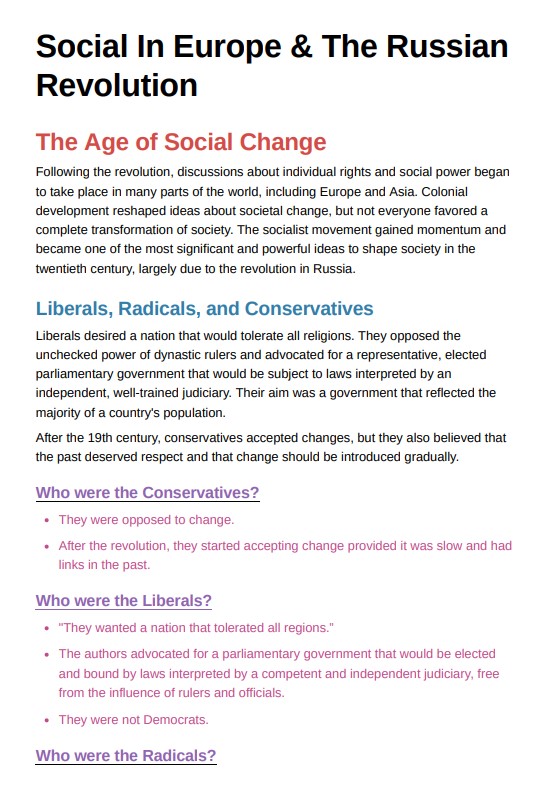Russian Revolution and Socialism
Summary:
The note discusses socialism and the Russian Revolution, which was led by the Bolsheviks, a socialist political party led by Vladimir Lenin. The revolution aimed to create a socialist society in Russia through the violent overthrow of the existing capitalist system. The revolution had a significant impact on world history, leading to the spread of socialist and communist movements worldwide.
The note also highlights the age of social change that followed the revolution, with discussions about individual rights and social power taking place in Europe and Asia. The socialist movement gained momentum and became one of the most significant and powerful ideas to shape society in the twentieth century.
The note further discusses the coming of socialism to Europe and the support it received, leading to the establishment of an international organization known as the Second International. In addition, the note sheds light on the challenges faced by the Russian Empire in 1914, including industrialization, social unrest, and its involvement in World War I. The events of the coming years, including the Russian Revolution and the fall of the Tsarist regime, would reshape the country and the world for decades to come.
Excerpt:
Russian Revolution and Socialism
Social In Europe & The Russian Revolution
The Age of Social Change
Following the revolution, discussions about individual rights and social power began to take place in many parts of the world, including Europe and Asia. Colonial development reshaped ideas about societal change, but not everyone favoured a complete transformation of society. The socialist movement gained momentum and became one of the most significant and powerful ideas to shape society in the twentieth century, largely due to the revolution in Russia.
Liberals, Radicals, and Conservatives
Liberals desired a nation that would tolerate all religions. They opposed the unchecked power of dynastic rulers and advocated for a representative, elected parliamentary government that would be subject to laws interpreted by an independent, well-trained judiciary. Their aim was a government that reflected the majority of a country’s population. After the 19th century, conservatives accepted changes, but they also believed that the past deserved respect and that change should be introduced gradually.


Reviews